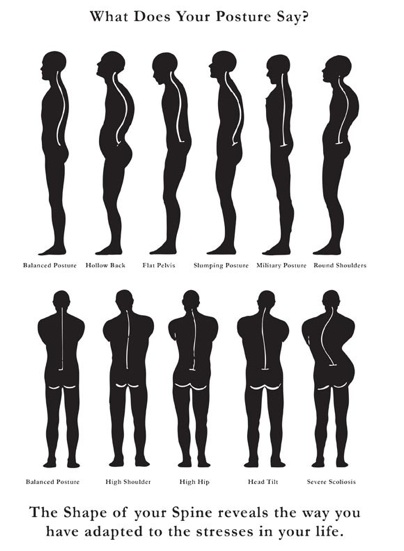[Coming To Running at 40, 50, 60, or 70!]

We don’t want to cause injury from exercise! We’re talking about older people here, people over 40.
We are talking about people who have had many years of sitting with one leg crossed over another; many hours leaning in a special way while they write, always with the same hand. Many have spent much of the working day holding heavy tools; playing sport with one side, one hand, one shoulder, one hip, one leg taking a leading role – always the same one.
Older people have had more years of injuries, and more years of niggles – a turned ankle, a sensitive knee, a stiff neck or shoulder.
The body adjusts to all these stimuli, it is only natural. Less weight is put on the leg with the sore knee. The well used arm and shoulder is bigger and the thorax adapts to the extra muscle mass it must carry on one side. Most injuries are temporary, but after recovery – after 6 weeks or 6 months of compensating the changes in the body often are fixed.
This is how posture can become crooked or twisted over time.
Is your posture good?
I became used to being told to ‘straighten up!’ I am left-handed, and my left shoulder is bigger and in some ways dominant. I broke my left ankle at school, and had an arthroscopy there to remove a bone fragment in my 40s – these both contributed to imperceptible tendency to tread a little carefully with my left foot. And I did often sit with my left leg crossed over the right.
Without any history of running, in my late 60s I had put my name down for a long mountain run in the UK Lake District. Now I was having second thoughts. I did not want to spoil my ability to enjoy walking. Was I really fit to run?
I had started yoga. This made me more body-aware, and I detected slight ‘imbalances’ between my left and right sides.
A friend had just turned 70. He walked in the Norwegian mountains and woods on holidays and weekends all his life. But on a recent trip he found he had pain in both his knees. Was this the end of his main leisure pursuit? His doctor referred him to a physiotherapist. The physio made several tests and identified that some of the muscles in the back were underdeveloped. A program of weekly supervised exercise, supplemented by a couple of sessions at home and, over several months the problem sisappeared.
Maybe I should have an similar assessment – to identify any problems and and correct them before I make them worse, or and to stop them causing an injury?